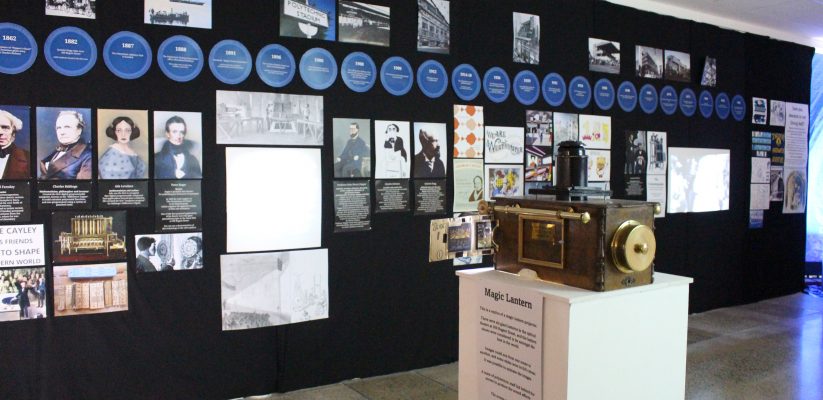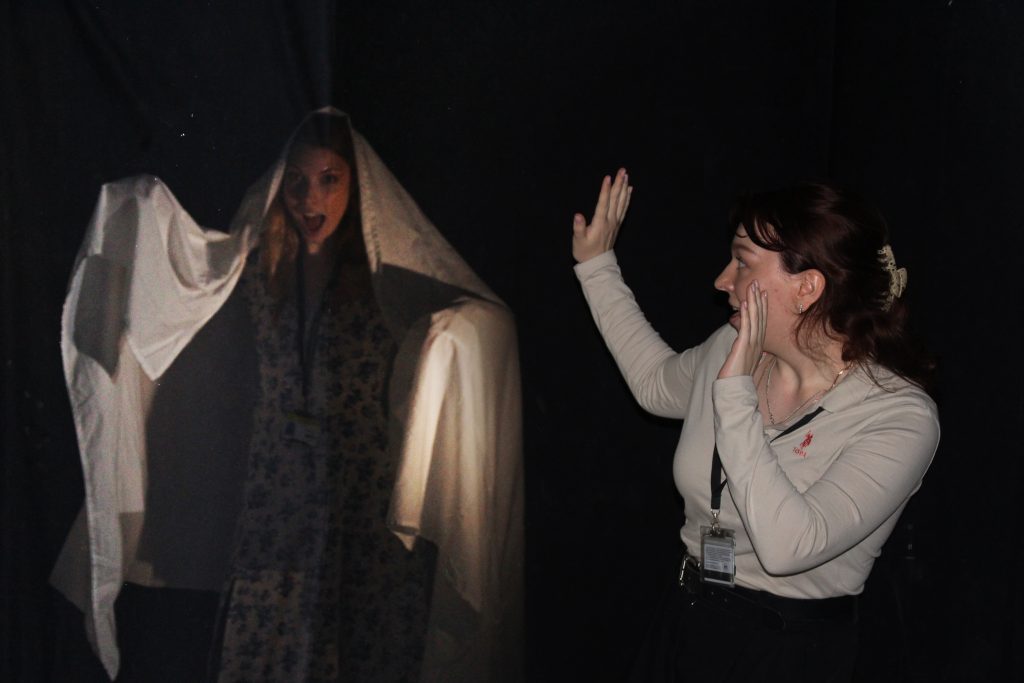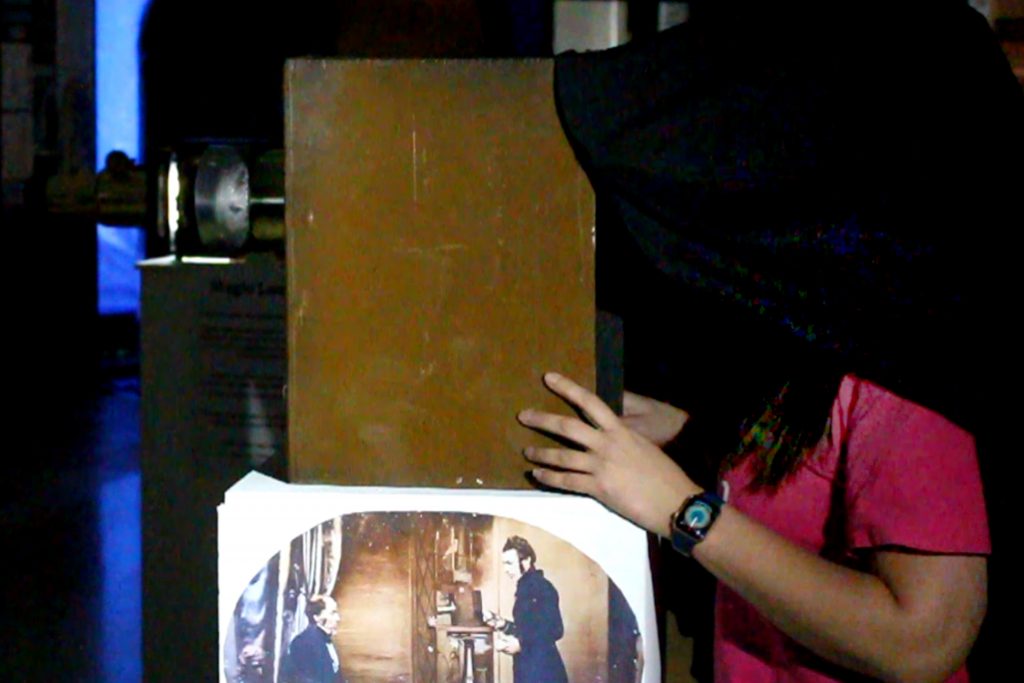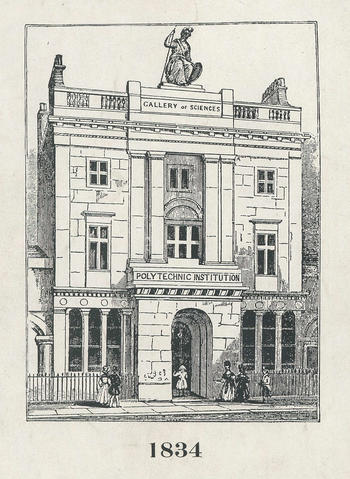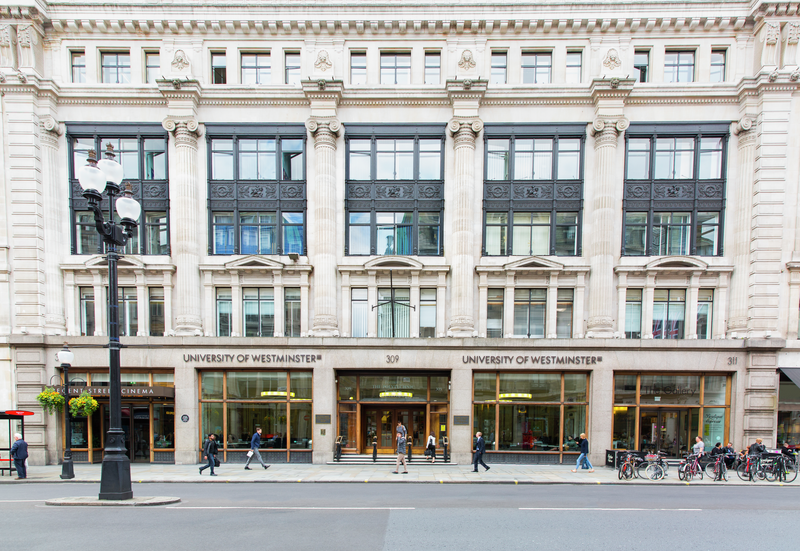In 2023, the University of Westminster proudly celebrated its rich and illustrious heritage. 185 years ago, our Regent Street Campus, then known as the Polytechnic Institution, opened its doors to the very first cohort of students, with a noble mission – to educate and inspire the working people of London, irrespective of their backgrounds or financial circumstances.
Despite the change in name, our core mission has remained and has expanded far beyond the confines of London. We continue to build on this reputation, helping students from a variety of backgrounds realise their full potential.
In celebration of this historic anniversary, first-year students from our Animation, Illustration, and Graphic Design courses embarked on a unique project. As part of their course module focused on industry, they organised and curated an exhibition to share some of the captivating and fascinating tales from our distinguished history.
This exhibition took place at the London Gallery West, located at our Harrow Campus. The timing of the exhibition coincided with the University’s ‘Welcome Week’, offering an opportunity for both new and existing students, staff, and visitors to learn more about our cherished heritage, values, and community.
The exhibition featured a diverse and creative array of exhibits, each focusing on a remarkable aspect of history. Here are ten interesting facts from our pioneering history, that shape the University of Westminster today.
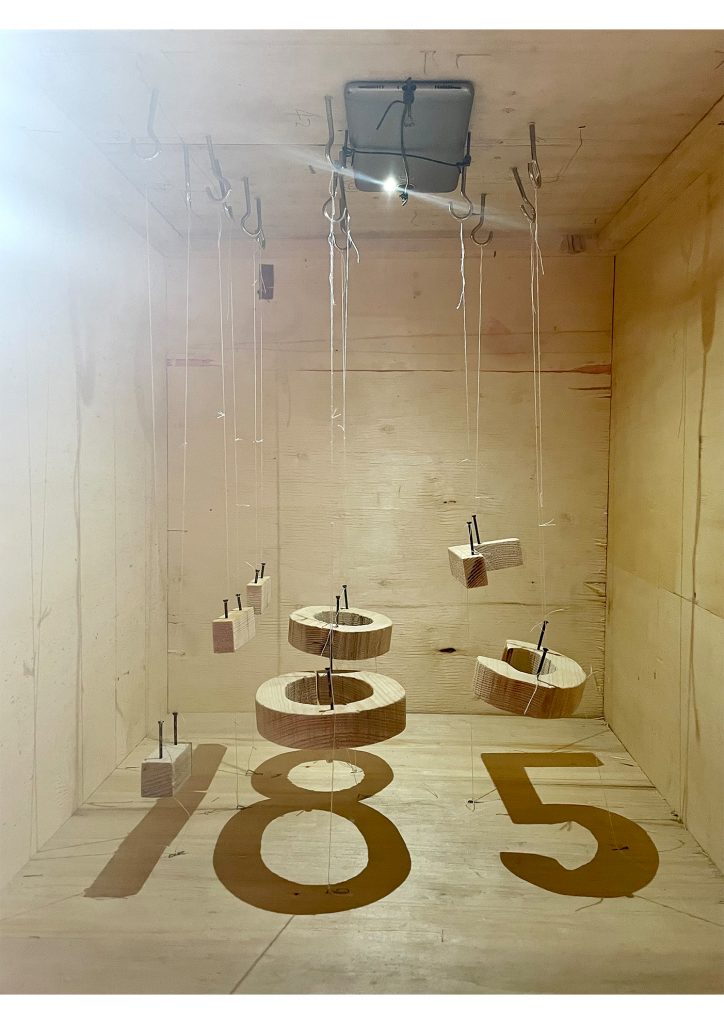
Baoxi Qu – Illustration BA 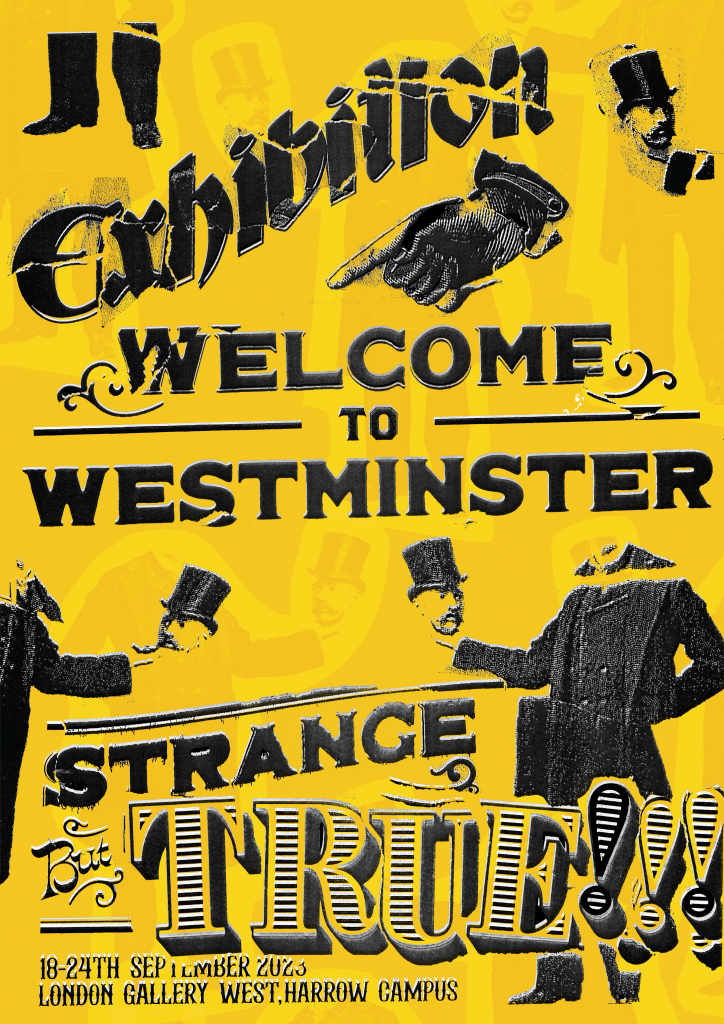
Valentina Martins Losi Pachecho – Graphic Design BA
- Ghost Illusion – Professor Pepper’s Legacy
Professor Pepper was a scientist, inventor and director of the Polytechnic. He introduced a programme of evening lectures and is famously known for his Ghost Illusion.
Students recreated Professor Pepper’s Ghost Illusion, inviting visitors to experience and create the illusion themselves. This illusion famously used in 1862 for Charles Dickens’s Christmas Ghost Story at 309 Regent Street, is still in use today, notably in the new ABBA Voyage show.
2. Diving Bell – An Indoor Underwater Adventure

When the Polytechnic first opened in 1838, one of most popular exhibits was the Diving Bell, which allowed members of the public the opportunity, for 1 shilling, to descend into the pool at Regent Street. It was reported that HRH Prince Albert participated when he visited in 1840 and, after this visit, agreed to be the institution’s patron. Thereafter, the institution’s name was changed to the Royal Polytechnic.

Recreation of the Diving Bell
3. Photos from our Archives – Pioneers in Technology
Students used A.I. technology to add details and colours to photos from our University archive. The photos document classes and student life throughout our history. Students learnt to use Artificial Intelligence to update the images and in some cases found that the updated images told a different story. The images (which include an Architecture lecture in 1899, Electronics labs in 1938, Photography in 1949, Film Production in 1951, Surveying in 1951 and Dress Making in 1954) highlighted our students have always been pioneers in using emerging technologies. Students from across Westminster use A.I. for a wide range of student projects and we are currently working on introducing a new Applied Artificial Intelligence MSc (subject to validation). This course will prepare our students for the challenges and job roles of the future.

4. Watch the Birdie – Pioneers in Photography
Visitors had the chance to take photographs of each other in a reconstruction of Europe’s first photo studio, established at our Regent Street Campus in 1841, just two years after the invention of photography by Louis Daguerre and Henry Fox Talbot.
Classes in photography were taught at the Polytechnic Institution from 1852, and the School of Photography was established in 1883. Today, our Photography BA is an established course, with an excellent international reputation for academic and practical teaching.
We have recently introduced the Fashion Photography BA and Expanded Photography MA, to meet the industry’s ongoing demand for creative, well- trained and agile graduates within a rapidly changing visual image culture and global environment.
Our Regent Street Campus is where our history began and is still being used for teaching today.
5. Cinematographe – Pioneers in Film
Visitors were able to watch the Lumiere’s pioneering movies as part of the exhibition. In 1896, the Lumiere Brothers premiered their films at our Regent Street Cinema, making it the world’s oldest cinema. This event marked the first screening of moving films to a paying UK audience and is considered the birthplace of British cinema. In 1909, our first lectures in cinematography were presented. Today, the work of our Film BA students are shown at festivals globally and have won many honours, including Royal Television Society Awards, a Student Academy Award and a Grierson Best Student Documentary Award. Our Film BA alumni also include Oscar and BAFTA nominees and winners.
6. Polytechnic Touring Association (PTA) – Pioneers in Tourism:
In 1888 the Polytechnic Touring Association (PTA) was created, as a travel agency who arranged UK and foreign educational holidays for students and members of the institution. Their ship was the world’s first holiday cruise liner and in 1932, the Polytechnic offered the first package holiday by air. Despite the PTA eventually becoming an independent company and merging to become Lun Poly, it still kept close links with the Polytechnic. Lun Poly eventually rebranded as the popular leisure, travel and tourism company, Tui.
Today, our students are encouraged to participate in a range of international opportunities, from Westminster Working Cultures, Working and studying abroad, International internships, field, study and residential trips. Our long history of tour operation continues, with our industry-informed suite of Tourism courses, which prepare the next generation of tourism professionals to lead businesses that support sustainable tourism across the world.
7. George Cayley’s Inventions – Pioneers in Aviation
Sir George Cayley, who opened the Polytechnic in 1838, was a pivotal figure in aeronautics. In 1853, he built the world’s first manned flight glider and his inventions have helped shape our modern lives from air travel to the bicycle. Our long-established history in air transport and aviation continues today, with our successful Air Transport Planning and Management MSc.
8. Team GB’s First Black Olympian – Pioneers in Diversity:
The Polytechnic Athletics Club was founded in 1887. Athletes from the club won medals at the 1920 Olympic Games and Harry Edward was Britain’s first black Olympian and medal winner, winning bronze in the 100m. At Westminster, we celebrate and take pride in our diversity and currently welcome students from 169 different nationalities.
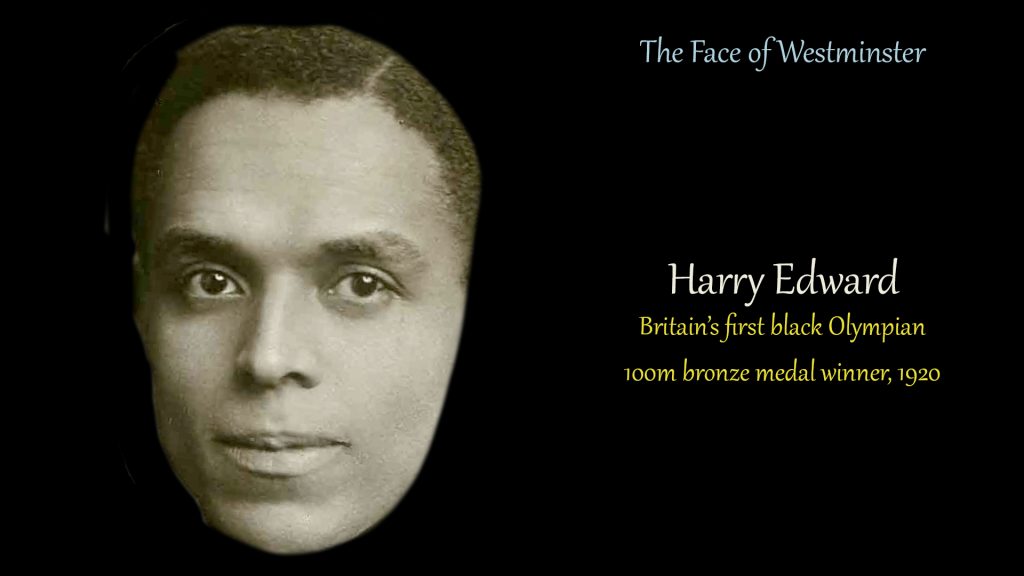
The Polytechnic Athletics Club was also responsible for organising the opening ceremony of the Olympic Games and Marathon in 1908, which is where our history in event planning started. Today, our Events courses prepare graduates for a wide range careers such as large-scale events, music festivals, community events, live shows and other public gatherings.
9. Incredible Alumni – A Place for Pioneers
The exhibition celebrated our remarkable alumni by featuring a constantly changing giant 3D head. Notable figures included Alexander Fleming, a Nobel Prize winner for his discovery of penicillin, and Vivienne Westwood, a renowned fashion designer.
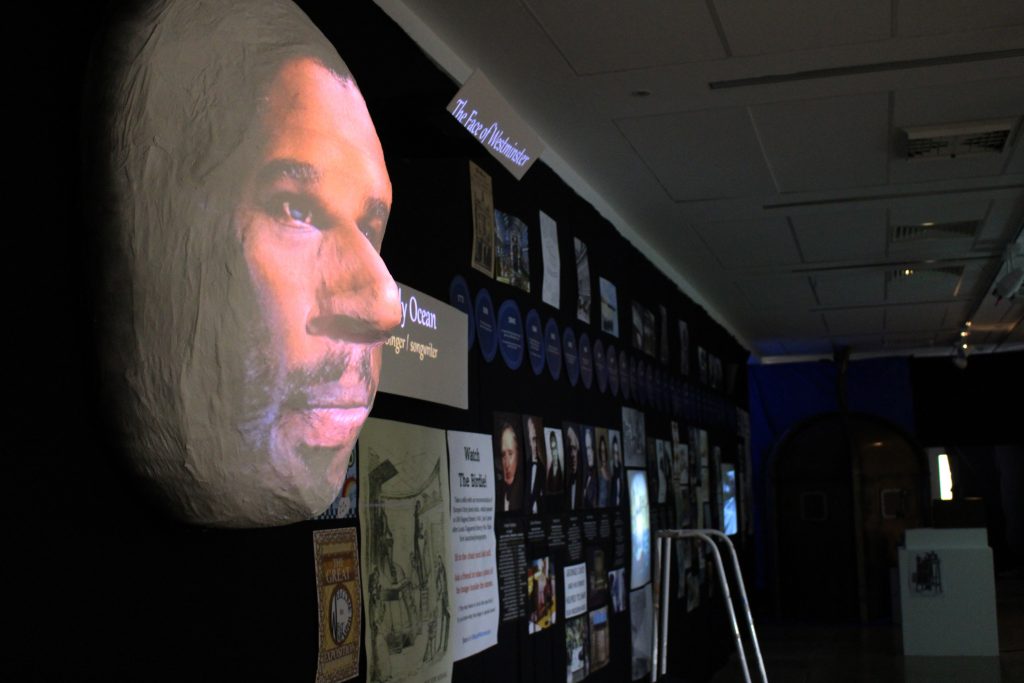
10. Retraining Disabled Soldiers (1914-18)– Pioneers in Inclusivity
During World War I, the Polytechnic provided training for severely wounded soldiers, enabling them to acquire new skills in various trades. By January 1919, this initiative had retrained 1282 servicemen, 826 of whom were back in employment. Today, we remain dedicated to creating an inclusive and supportive environment for all.
First year Animation BA student Felipe Paz, who created pieces for the exhibition said, “It was fantastic to work with all three courses on this live project, and I’m now looking forward to the next collaboration.”
Aida Saktaganova, a student from the Animation BA who was part of the project said, “As an international student it was very interesting to know about the university and its history, and to work with very talented people.”
Stephen Ryley, project lead and course leader for the Animation BA said “The students have worked extremely effectively to help mark this historic moment in our story, and their eye-opening exhibition has been well received by our incoming students.”
These incredible parts of our history and much more not only show how we’ve lasted over time but also motivate us to keep supporting a diverse and creative group of learners. Further celebrations are planned for later in 2023, including a special event honouring 250 years since the birth of our founder, George Cayley. Take a virtual tour of the exhibition and hear from our student creators about some of their pieces.
About Westminster
As one of the most diverse universities in the UK, we are a global university with London energy, with more than 19,000 students from 169 countries.
Visit our website to find out more about our courses.
- MORE 2025: Showcasing the Future of Architecture and Cities - October 27, 2025
- Opportunities at Westminster: My journey as a Student Ambassador - October 3, 2025
- OPEN 2025 Celebrating Talented Students - July 23, 2025
